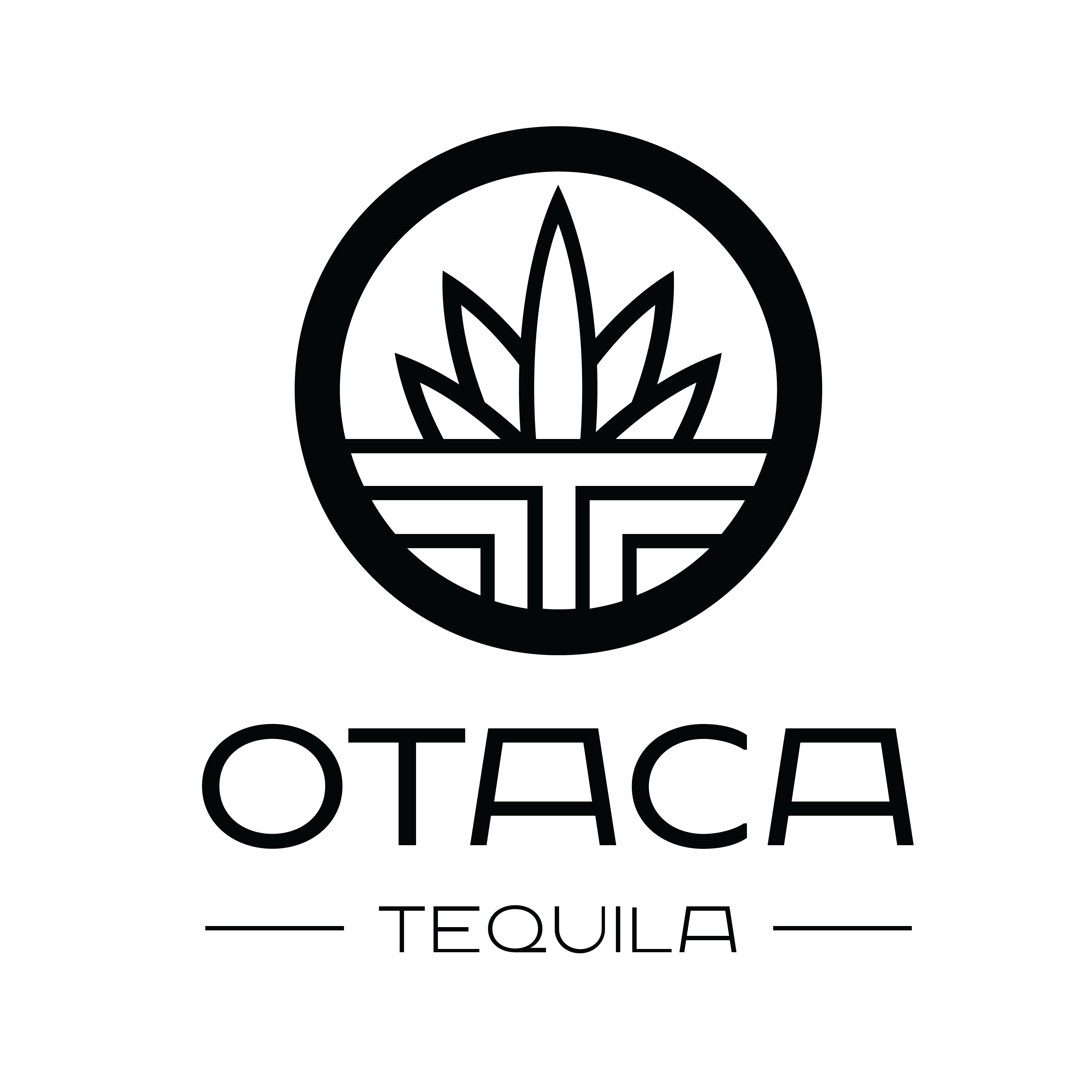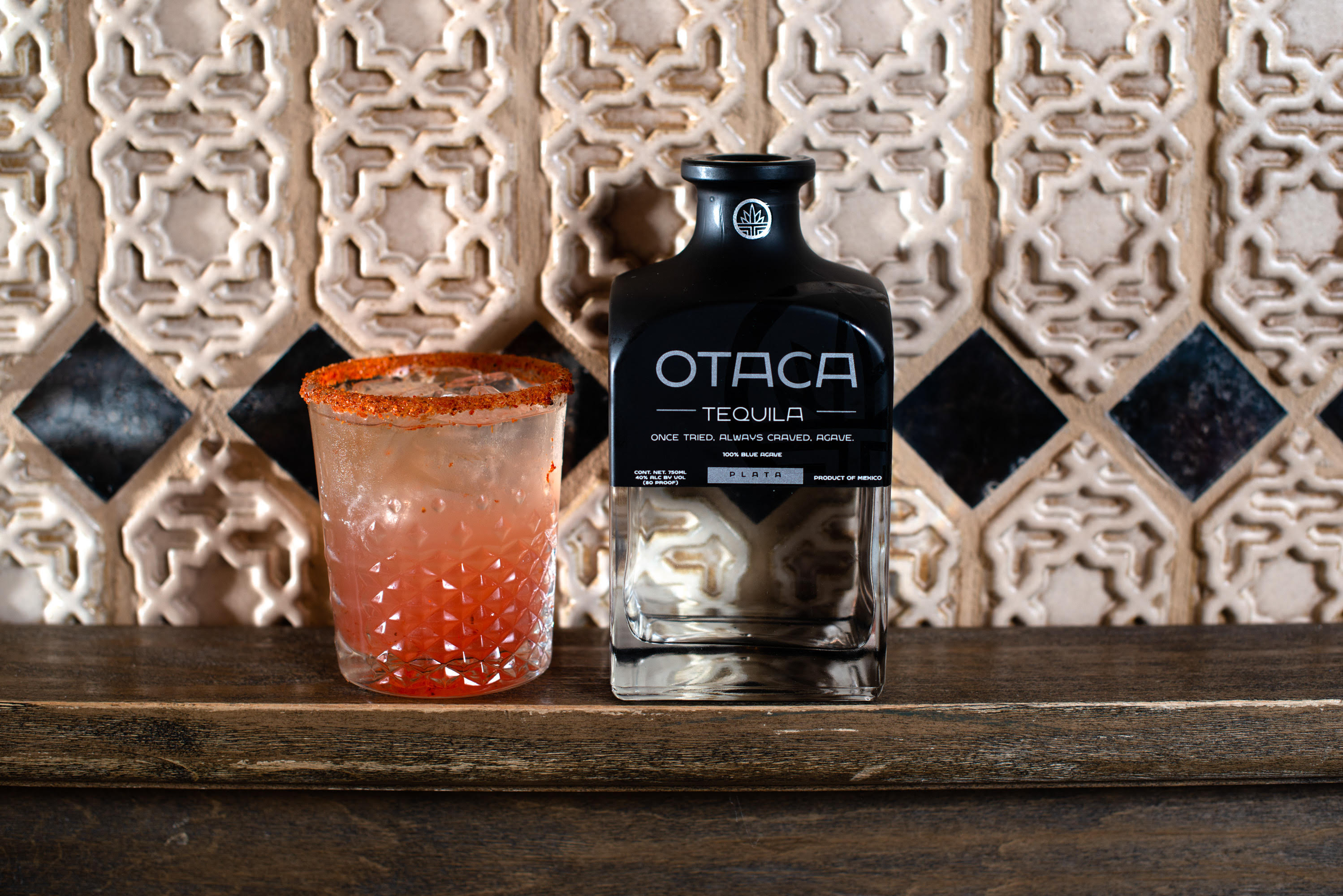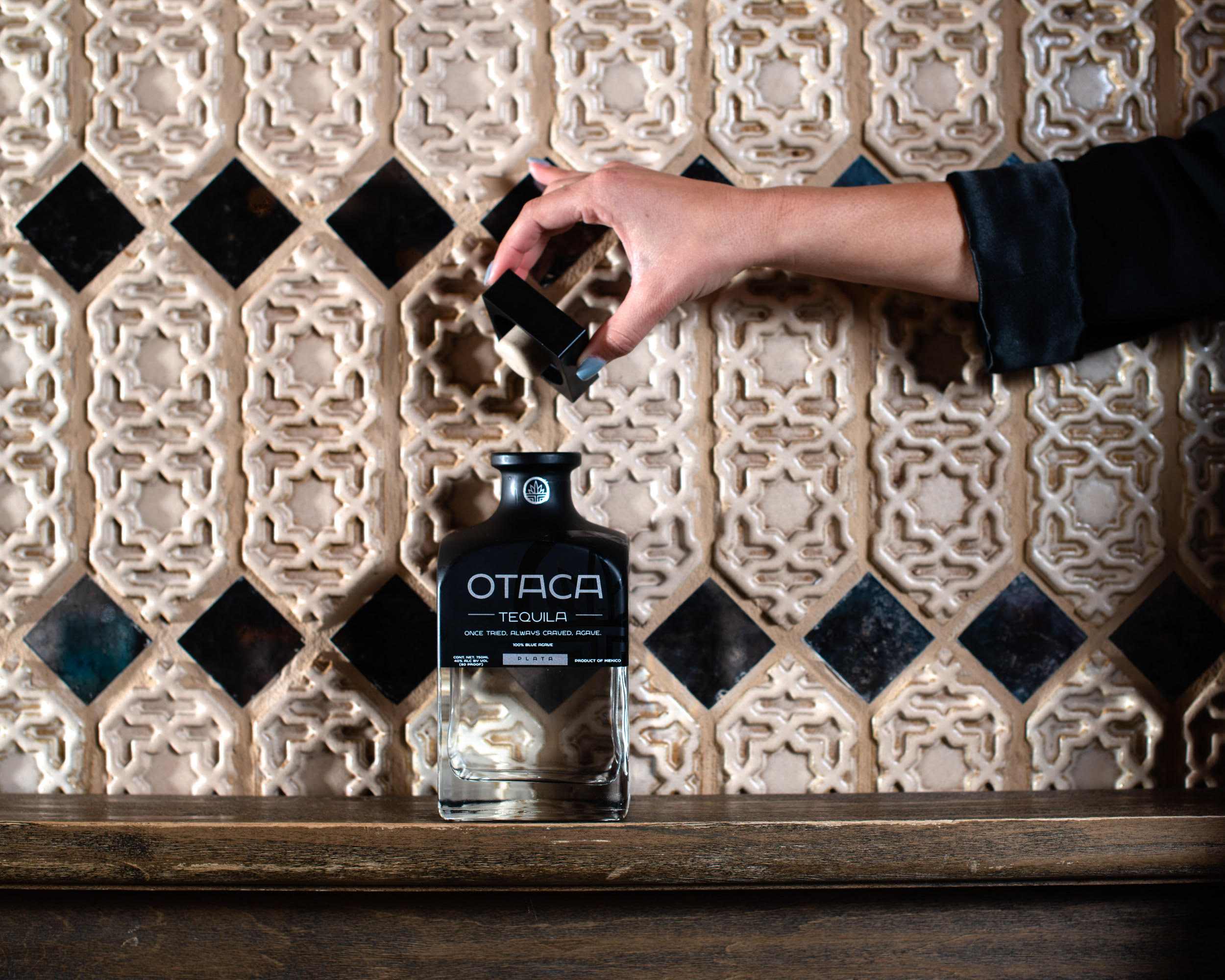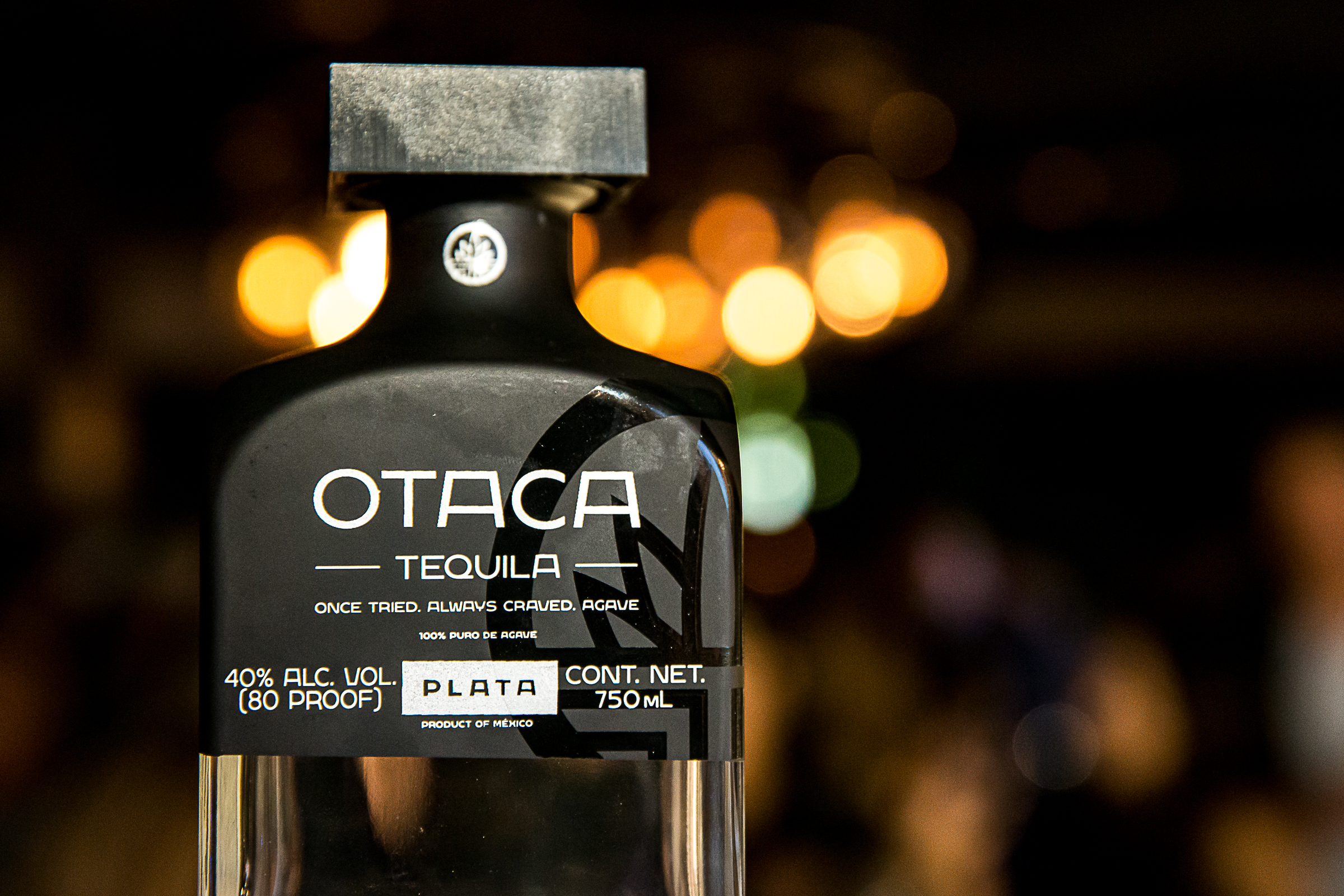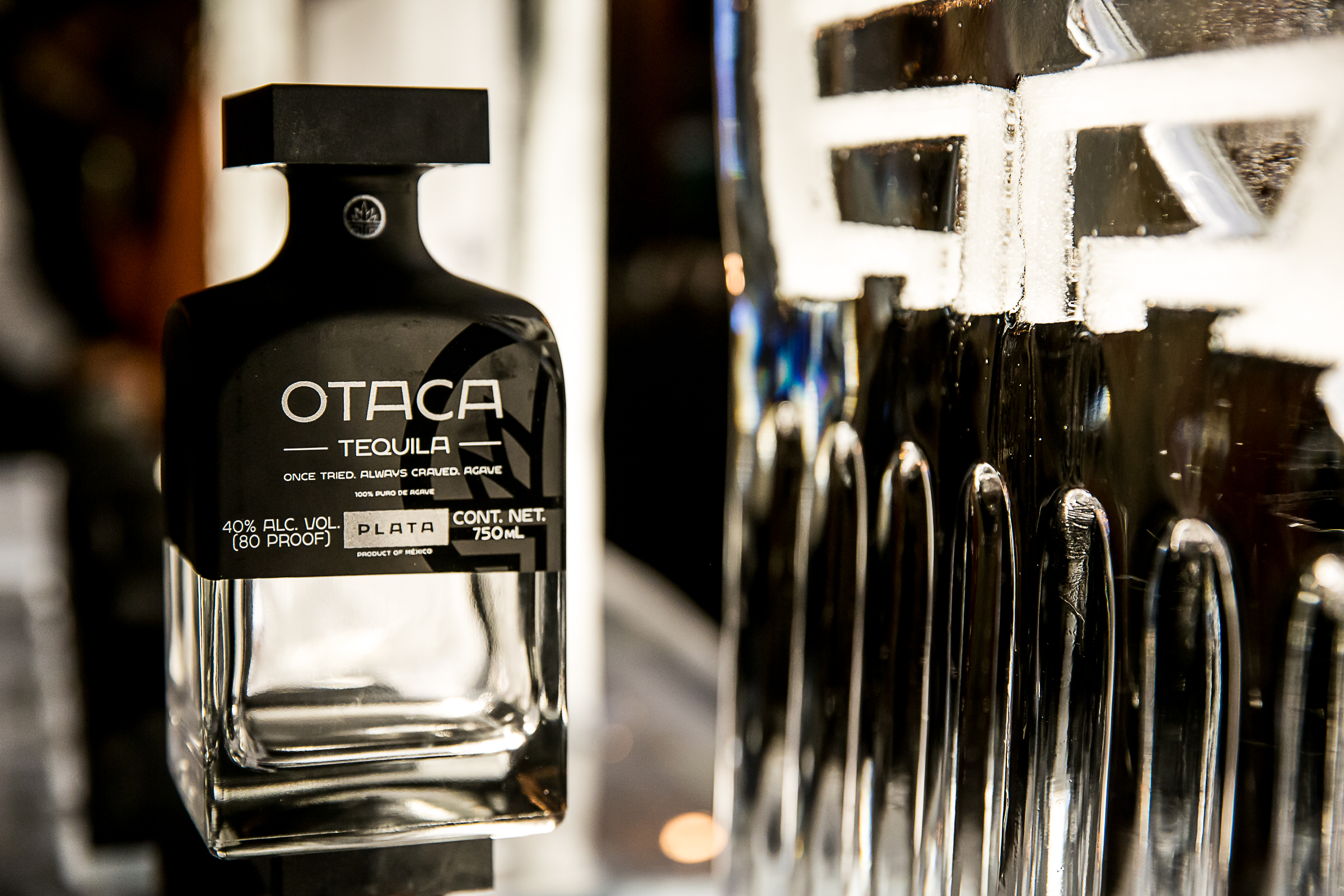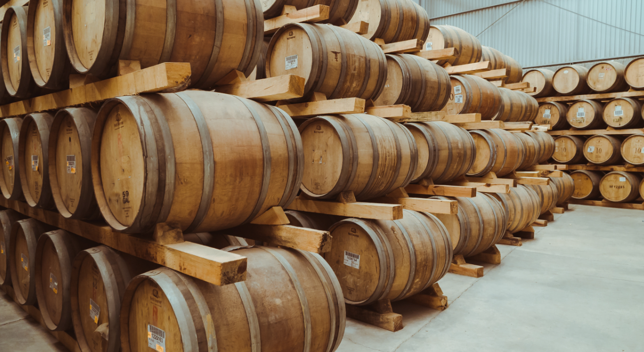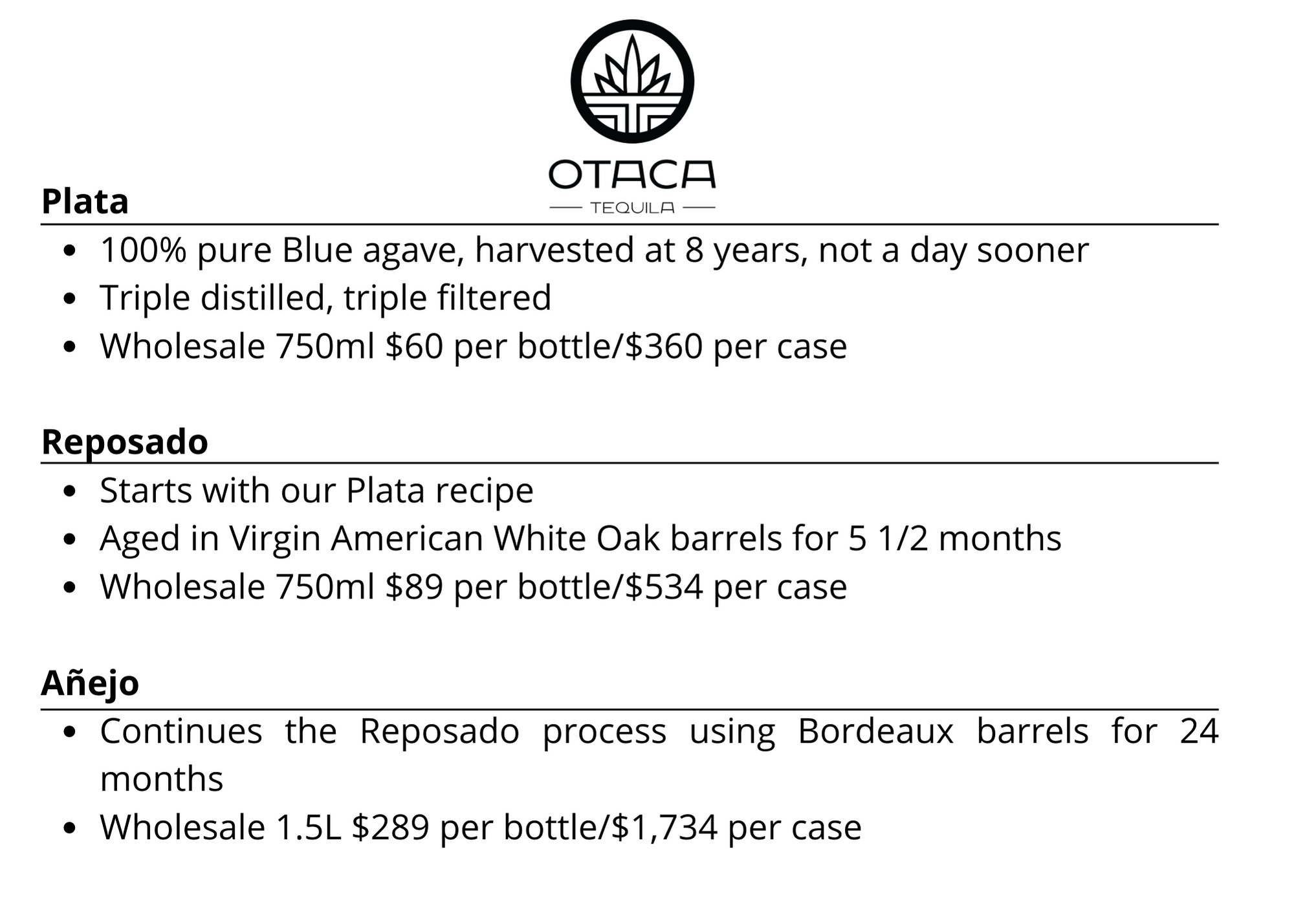Buying Securities involves a high degree of risk. In addition to the negative implications of all information and financial data included in or referred to directly in this Form C, potential investors should consider the following Risk Factors before making an investment in the Securities. This Form C contains forward-looking statements and information concerning OTACA, its plans, and other future events. These statements should be read together with the discussion of Risk Factors set forth below, because those Risk Factors could cause actual results to differ materially from such forward-looking statements.
Risks Related to the Company’s Business and Industry
Risks of expansion of our business arise due to our limited operating history. Historically we have had a limited number of employees. As we obtain customers, we will be required to establish a corporate infrastructure. Our continued growth and profitability depend on our ability to successfully realize our growth strategy by building our brand identity, and expanding our selection of super-premium tequila and sales thereof. We cannot assure that our efforts will be successful nor that we will not incur unforeseen administrative and compliance costs.
In particular, the growth of our business is primarily dependent on the ability of our marketing team to place our tequila with wholesalers, distributors, and retail chains. Retail shelf space and bar space are limited, and we will be competing with innumerable other distilled spirts brands for shelf space and bar space. We also have only secured 245 acres of plantings to supply our production needs. Due to the geographical limitations on the planting of blue agave plants imposed by law, soil fertility and climate, there is a limited amount of suitable land available for cultivation of the blue agave plant, and land prices may grow significantly in the future. These factors could adversely impact our growth and profitability in the future.
Capital and credit market conditions may adversely affect our access to various sources of capital and/or the cost of capital, which could impact our business activities, dividends, earnings and Common Stock price, among other things. Our failure to obtain capital may significantly restrict our proposed operations. We need capital to operate and fund our business plan. We do not know what the terms of any future capital raising may be, but any future sale of our equity securities will dilute the ownership of existing stockholders and could be at prices substantially below the price of the Securities sold in this offering. Our failure to obtain the capital, which we require, may result in the slower implementation or curtailment of our business plan.
Dependence on Key Personnel. We depend on key personnel, including Nicole and Anthony Accetta, Nick Cucuk, and Joel Garcia Barreto, and other current and future members of management, and the loss of services of one or more members of our senior management team or our marketing team or our inability to attract and retain highly qualified personnel, could adversely affect our business, diminish our investment opportunities and weaken our relationships with lenders, business partners and existing and prospective industry participants, which could negatively affect our financial condition, results of operations, cash flow and trading price of our Common Stock.
The supply of quality water, agricultural, and other raw materials, certain raw materials and packaging materials purchased under short-term supply contracts, limited group of suppliers of glass bottles may adversely affect our ability to produce tequila. The quality and quantity of water available for use is important to the supply of our agricultural raw materials, bottling and our ability to operate our business. Water is a limited resource in many parts of Mexico, and if climate patterns change and droughts become more severe, there may be a scarcity of water or poor water quality which may affect our production costs or impose capacity constraints. We are dependent on sufficient amounts of quality water for operation of our and distillery, as well as to irrigate in the event of any drought. If water available to our operations or the operations of our suppliers becomes scarce or the quality of that water deteriorates, we may incur increased production costs or face manufacturing constraints. In addition, water purification and waste treatment infrastructure limitations could increase costs or constrain operation of our production facilities and vineyards. A substantial reduction in water supplies could result in material losses of blue agave plants, which could severely constrain our supply. Although we anticipate our operations will have adequate sources of water to support their on-going requirements, there is no guarantee that the sources of water, methods of water delivery, or water requirements will not change materially in the future. We may incur additional expenses for improving water delivery and securing additional water sources.
Our distillery uses fuel and electricity. Certain raw materials and packaging materials are purchased under contracts of varying maturities. The supply, on-time availability and price of energy, raw materials, and packaging material can be affected by many factors beyond our control, including market demand, global geopolitical events (especially as to their impact on crude oil prices), droughts, storms, and other weather conditions or natural or man-made events, economic factors affecting growth decisions, inflation, plant diseases, and theft.
Our distillery is also dependent upon an adequate supply of glass bottles. Glass bottle costs are one of our largest components of cost of product sold. In the U.S. and Mexico, glass bottles have only a small number of producers. Currently, one producer supplies all of our glass container requirements. We believe that we could locate alternate suppliers, but changing suppliers may cause significant delays in productions, and other disruptions in our supply chains could impact our ability to continue production. To the extent any of the foregoing factors increases the costs of our finished products or lead to a shortage of our product supply, we could experience a material adverse effect on our business, liquidity, financial condition, and/or results of operations.
There are economic and political uncertainties associated with our international operations. Our products are produced in Mexico, our headquarters are in the United States, and, as we expand international sales, we will be increasingly operating on an international basis.
The countries in which we operate and distribute our tequila impose duties, excise taxes, and/or other taxes on beverage alcohol products, and/or on certain raw materials used to produce our beverage alcohol products, in varying amounts. Governmental bodies may propose changes to international trade agreements, treaties, tariffs, taxes, and other government rules and regulations including but not limited to environmental treaties and regulations. Significant increases in import and excise duties or other taxes on, or that impact, beverage alcohol products could have a material adverse effect on our business, liquidity, financial condition, and/or results of operations. Any such tariffs, particularly on imports from Mexico and any retaliatory tariffs imposed by the Mexican government, may have a material adverse effect on our results of operations, including our sales and profitability.
In addition, governmental agencies extensively regulate the beverage alcohol products industry concerning such matters as licensing, warehousing, trade and pricing practices, permitted and required labeling, advertising and relations with wholesalers and retailers. Certain regulations also require warning labels and signage. New or revised regulations or increased licensing fees, requirements, or taxes could have a material adverse effect on our business, liquidity, financial condition, and/or results of operations. Additionally, various jurisdictions may seek to adopt significant additional product labeling or warning requirements or limitations on the marketing or sale of our products because of what our products contain or allegations that our products cause adverse health effects. If these types of requirements become applicable to one or more of our major products under current or future environmental or health laws or regulations, they may inhibit sales of such products.
These uncertainties and changes, as well as the decisions, policies, and economic strength of our suppliers and distributors, could have a material adverse effect on our business, liquidity, financial condition, and/or results of operations.
We are dependent on limited distillation facilities for production of our tequila, expansion and construction issues, and the need to expend significant amounts for inventory. We are dependent on a Jalisco distillery operated by a third party as our sole production site, both now as well as for the near-term. We may be required to locate an alternate distillery if our sales grow and our current distillery cannot fulfill all our production needs. Expansion of current production facilities and any construction of new production facilities are subject to various regulatory and developmental risks, including but not limited to: the ability to obtain timely certificate authorizations, necessary approvals and permits from regulatory agencies and on terms that are acceptable to us or third parties with whom we contract; (ii) potential changes in federal, state, and local statutes and regulations, including environmental requirements, that prevent a project from proceeding or increase the anticipated cost of the project; (iii) inability to acquire rights-of-way or land or water rights on a timely basis on terms that are acceptable to us or third parties with whom we contract ; (iv) inability to acquire the necessary energy supplies, including electricity, natural gas, and diesel fuel; or (v) a temporary halt in construction activities due to COVID-19. Any of these events could delay the expansion or construction of our production facilities.
We may not be able to satisfy our product supply requirements for our tequila in the event of a significant disruption, partial destruction, or total destruction of our distillery, or difficulty shipping raw materials and product into or out of the U.S., or temporary inability to produce our product due to closure or lower production levels of our distillery as a result of COVID-19. A significant disruption at the Jalisco distillation and bottling facility, even on a short-term basis, could impair our ability to produce and ship products to market on a timely basis. Alternative facilities with sufficient capacity or capabilities may not readily be available, may cost substantially more or may take a significant time to start production, any of which could have a material adverse effect on our product supply, business, liquidity, financial condition, and/or results of operations.
Also, production facilities are asset intensive. As our operations are concentrated in one facility, we are more likely to experience a significant operational disruption or catastrophic loss from acts of war or terrorism, fires, floods, earthquakes, severe winter storms, hurricanes, pandemics, labor strike, or other labor activities. If a significant operational disruption or catastrophic loss were to occur, we could breach agreements, our reputation could be harmed, and our business, liquidity, financial condition, and/or results of operations could be adversely affected due to higher maintenance charges, unexpected capital spending, or product supply constraints.
We do not currently have insurance coverage payable to us in the event of any disruption of production. In general, insurance policies do not cover certain types of catastrophes and may not cover certain events such as pandemics. Economic conditions and uncertainties in global markets may adversely affect the cost and other terms upon which we are able to obtain property damage and business interruption insurance. Because of these factors, we may be at greater risk that we may experience an adverse impact to our business, liquidity, financial condition, and/or results of operations.
Pandemics, such as the current global COVID-19 virus, outbreaks of communicable infections or diseases, or other public health concerns in the markets in which our consumers or employees live and/or in which we or our distributors, retailers, and suppliers operate. Disease outbreaks and other public health conditions could result in disruptions and damage to our business caused by potential negative consumer purchasing behavior as well as disruption to our supply chains, production processes, and operations. Consumer purchasing behavior may be impacted by reduced consumption by consumers who may not be able to leave home or otherwise shop in a normal manner as a result of quarantines or other cancellations of public events and other opportunities to purchase our products, from bar and restaurant closures, or from a reduction in consumer discretionary income due to reduced or limited work and layoffs. Supply disruption may result from restrictions on the ability of employees and others in the supply chain to travel and work, such as caused by quarantine or individual illness, or which may result from border closures imposed by governments to deter the spread of communicable infection or disease, or determinations by us or our suppliers or distributors to temporarily suspend operations in affected areas, or other actions which restrict the ability to distribute our products or which may otherwise negatively impact our ability to produce, bottle and ship our product, for our distributors to distribute our products, or for our suppliers to provide us our raw materials. Ports or channels of entry may be closed or operate at only a portion of capacity, or transportation of product within a region or country may be limited, if workers are unable to report to work due to travel restrictions or personal illness. Our operations and the operations of our suppliers may become less efficient or otherwise become negatively impacted if our executive leaders or other personnel critical to our operations are unable to work or if a significant percentage of the workforce is unable to work or is required to work from home. Our cyber-security could be compromised if persons who are forced to work from home do not maintain adequate information security. A prolonged quarantine or border closure could result in temporary or longer-term disruptions of sales patterns, consumption and trade patterns, supply chains, production processes, and operations. A widespread health crisis, such as the COVID-19 pandemic, could negatively affect the economies and financial markets of many countries resulting in a global economic downturn which could negatively impact demand for our products and our ability to borrow money. Any of these events could have a material adverse effect on our business, liquidity, financial condition, and/or results of operations.
Climate change and environmental regulatory compliance could adversely affect our business. Our business depends upon agricultural activity and natural resources. There has been much public discussion related to concerns that carbon dioxide and other greenhouse gases in the atmosphere may have an adverse impact on global temperatures, weather patterns, and the frequency and severity of extreme weather and natural disasters. Severe weather events, such as drought or flooding, or an unexpectedly severe winter in Mexico, and climate change may negatively affect agricultural productivity in the regions from which we presently source our various agricultural raw materials or the energy supply powering our production facilities. Decreased availability of our raw materials may increase the cost of goods for our products. Severe weather events or changes in the frequency or intensity of weather events can also disrupt our supply chain, which may affect production operations, insurance cost and coverage, as well as delivery of our products to wholesalers, retailers, and consumers. Natural disasters such as severe storms, floods, and earthquakes may also negatively impact the ability of consumers to purchase our products.
We may experience significant future increases in the costs associated with environmental regulatory compliance, including fees, licenses, and the cost of capital improvements for our operating facility to meet environmental regulatory requirements. In addition, we may be party to various environmental remediation obligations arising in the normal course of our business. We may incur costs associated with environmental compliance arising from events we cannot control, such as unusually severe floods, hurricanes, earthquakes, or fires. We cannot assure that our costs in relation to these matters will not exceed our projections or otherwise have a material adverse effect upon our business, liquidity, financial condition, and/or results of operations.
Reliance on wholesale distributors, major retailers, and government agencies Local market structures and distribution channels vary worldwide. In the U.S., we sell our products principally to retailers and restaurants at this time, but in the future, we plan to increase sales by marketing to wholesalers for resale to retail outlets. We have no distribution agreement to date. Wholesalers and retailers of our products offer products which compete directly with our products for retail shelf space, promotional support and consumer purchases, and wholesalers or retailers may give higher priority to products of our competitors. The replacement or poor performance of our major wholesalers, retailers, or government agencies could result in temporary or longer-term sales disruptions or could have a material adverse effect on our business, liquidity, financial condition, and/or results of operations.
Contamination and degradation of product quality from diseases, pests, and the effects of weather and climate conditions. Contamination, whether arising accidentally or through deliberate third-party action, or other events that harm the integrity or consumer support for our brand, could adversely affect sales. Various diseases, pests, fungi, viruses, drought, frosts, and certain other weather conditions or the effects of climate conditions, such as smoke taint from wildfires, could affect the quality and quantity of our blue agave supply, decreasing the supply and quality of our products. Similarly, power disruptions due to weather conditions could adversely impact our production processes and the quality of our products. We cannot guarantee that we and/or our suppliers of agricultural raw materials will succeed in preventing contamination in existing and/or future fields. Future government restrictions regarding the use of agricultural raw materials may increase vineyard costs and/or reduce production of grapes or other crops. It is also possible that a supplier may not provide materials or product components which meet our required standards or may falsify documentation associated with the fulfillment of those requirements.
Product contamination or tampering or the failure to maintain our standards for product quality, safety, and integrity, including with respect to raw materials, naturally occurring compounds, packaging materials, or product components obtained from suppliers, may also reduce demand for our products or cause production and delivery disruptions. Contaminants or other defects in raw materials, packaging materials, or product components purchased from third parties and used in the production of our tequila products, or defects in the fermentation or distillation process could lead to low beverage quality as well as illness among, or injury to, consumers of our products and may result in reduced sales of the affected brand or all our brands.
If any of our products become unsafe or unfit for consumption, are misbranded, or cause injury, we may have to engage in a product recall and/or be subject to liability and incur additional costs. A widespread product recall, multiple product recalls, or a significant product liability judgment could cause our products to be unavailable for a period, which could further reduce consumer demand and brand equity.
Strategic Risks
Potential decline in the consumption of products we sell. Our business depends upon consumers’ consumption of our tequila. Consumer preferences and tastes may shift due to, among other reasons, changing taste preferences, demographics, or perceived value. Consequently, any material shift in consumer preferences and taste in our major markets away from our OTACA brand, or from super premium spirits, could have a negative impact on our business, liquidity, financial condition, and/or results of operations. Consumer preferences may shift due to a variety of factors, including changes in demographic or social trends, public health policies may be put into effect to deal with the spread of COVID-19, and changes in leisure, dining, and beverage consumption patterns. A limited or general decline in consumption in one or more of our product categories could occur in the future due to a variety of factors, including:
a general decline in economic or geopolitical conditions;
concern about the health consequences of consuming beverage alcohol products and about drinking and driving;
a general decline in the consumption of beverage alcohol products in on-premise establishments, which may result from stricter laws relating to driving while under the influence of alcohol;
the increased activity of anti-alcohol groups;
increased federal, state, provincial, and foreign excise, or other taxes on beverage alcohol products and possible restrictions on beverage alcohol advertising and marketing;
increased regulation placing restrictions on the purchase or consumption of beverage alcohol products or increasing prices due to the imposition of duties or excise tax or changes to international trade agreements or tariffs;
inflation; and
wars, health epidemics or pandemics, quarantines, weather, and natural or man-made disasters.
Dependence upon trademarks and proprietary rights, failure to protect our intellectual property rights. Our future success depends significantly on our ability to protect our current and future brands and products and to defend our intellectual property rights. We have been granted a trademark registration covering our brand, and products and expect to continue to file, trademark applications seeking to protect newly developed brands and products. We cannot be sure that trademark registrations will be issued with respect to any of our trademark applications. We could also, by omission, fail to timely renew or protect a trademark and our competitors could challenge, invalidate, or circumvent any existing or future trademarks issued.
Class action or other litigation relating to abuse of our products, the misuse of our products, product liability, or marketing or sales practices. There has been public attention directed at the beverage alcohol industry, which we believe is due to concern over problems related to harmful use of alcohol, including drinking and driving, underage drinking and health consequences from the misuse of alcohol. We could be exposed to lawsuits relating to product liability or marketing or sales practices. Adverse developments in lawsuits concerning these types of matters or a decline in the social acceptability of beverage alcohol products that may result from lawsuits could have a material adverse effect on our business, liquidity, financial condition, and/or results of operations.
General Risks
International operations, worldwide and domestic economic trends and financial market conditions, geopolitical uncertainty, or changes to international trade agreements and tariffs, import and excise duties, other taxes, or other governmental rules and regulations. Risks associated with international operations, any of which could have a material adverse effect on our business, liquidity, financial condition, and/or results of operations, include:
changes in local political, economic, social, and labor conditions;
potential disruption from socio-economic violence, including terrorism and drug-related violence;
restrictions on foreign ownership and investments or on repatriation of cash earned in countries outside the U.S.;
import and export requirements and border accessibility;
currency exchange rate fluctuations;
a less developed and less certain legal and regulatory environment in some countries, which, among other things, can create uncertainty regarding contract enforcement, intellectual property rights, privacy obligations, real property rights, and liability issues; and
inadequate levels of compliance with applicable anti-bribery laws, including the Foreign Corrupt Practices Act.
Unfavorable global or regional economic conditions, including economic slowdown and the disruption, volatility, and tightening of credit and capital markets, as well as unemployment, tax increases, governmental spending cuts, or a return of high levels of inflation, could affect consumer spending patterns and purchases of our products. These could also create or exacerbate credit issues, cash flow issues, and other financial hardships for us and our suppliers, distributors, retailers, and consumers. The inability of suppliers, distributors, and retailers to access liquidity could impact our ability to produce and distribute our products.
We are also exposed to risks associated with interest rate fluctuations. We could experience changes in our ability to manage fluctuations in interest rates and, accordingly, there can be no assurance that we will be successful in reducing those risks.
We could also be affected by nationalization of our international operations, unstable governments, unfamiliar or biased legal systems, intergovernmental disputes or animus against the U.S. Any determination that our operations or activities did not comply with applicable U.S. or foreign laws or regulations could result in the imposition of fines and penalties, interruptions of business, terminations of necessary licenses and permits, and other legal and equitable sanctions.
Damage to our reputation. The success of our brand depends upon the positive image that consumers have of that brand and maintaining a good reputation is critical to selling our branded products. Our reputation could also be impacted negatively by public perception, adverse publicity (whether or not valid, such as the similarity of the name of certain of our brands or trademarks and a type of virus), negative comments in social media, or our responses relating to:
a perceived failure to maintain high ethical and ESG standards and practices for all our operations and activities;
a perceived failure to address concerns relating to the quality, safety, or integrity of our products, including from contamination, whether arising accidentally or through deliberate third-party action;
allegations that we, or persons associated with us or formerly associated with us, have violated applicable laws or regulations, including but not limited to those related to safety, employment, discrimination, harassment, whistle-blowing, privacy, corporate citizenship, improper business practices, or cyber-security;
our environmental impact, including use of agricultural materials, packaging, water and energy use, and waste management; or
efforts that are perceived as insufficient to promote the responsible use of alcohol.
Failure to comply with federal, state, or local laws and regulations, maintain an effective system of internal controls, provide accurate and timely financial statement information, or protect our information systems against service interruptions, misappropriation of data, or breaches of security, could also hurt our reputation. Damage to our reputation or loss of consumer confidence in our products for any of these or other reasons could result in decreased demand for our products and could have a material adverse effect on our business, liquidity, financial condition, and/or results of operations, as well as require additional resources to rebuild our reputation, competitive position and brand equity and renew investor confidence.
